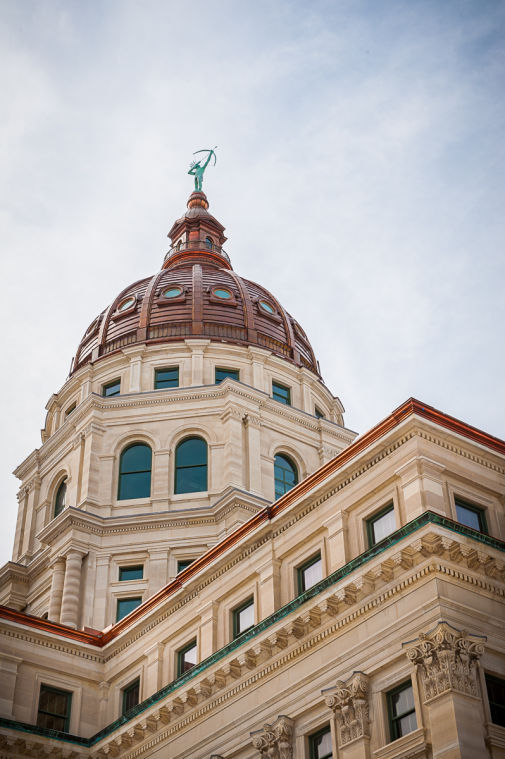Students present research at Capitol
February 4, 2015
Washburn University students will be presenting their undergraduate thesis at the Capitol Building on Wednesday, Feb. 11 along with students from the Kansas Board of Regents universities.
Five projects have been selected from Washburn for the Undergraduate Research Day at the Capitol. These include: Chelsea Cates’ “No One Else Can Take Your Place: Factors predicting LGBT suicide risk”; Susie Fields’ and Travis Bussen’s “Rehabilitation, Retribution, and Recidivism at the Kansas Juvenile Correctional Complex”; Haley Harris’ “Turnt up on Religion: The relationship between various aspects of religion and substance use”; Mary Ralston’s, Rebecca Maason’s, Madison Wiegers’, and Jack Van Dam’s “‘The dreamers’” Daring to dream”; and Casey Woodward’s “No One Listened.”
“I will be presenting my research over LGBT (lesbian, gay, bisexual, transgender) suicide,” senior psychology major Chelsea Cates explained. “For my project I created a survey on SurveyMonkey, which grouped factors that have been linked to LGBT suicide (mental health history, depression, family support, etc.) according to the bio-psychosocial model in order to figure out which most highly correlates with LGBT suicide. For example I put family health history in the biological category, depression proneness in the psychological category, and number of LGBT support groups attended into the social category. I ran a regression analysis and found that psychological factors predicted suicide above and beyond the other two categories.”
It is Cates’ hope that her research will “open the eyes of Kansans and improve mental health care for LGBT people.” Chelsea went on to explain, “I chose this topic for my thesis because I am lesbian and many of my friends are LGBT, so the topic is close to my heart. I’m hoping that the research will help others like me to get the psychological care that they need.”
Haley Harris, a senior psychology major, and one of the participants in this event explained her project.
“My project is titled ‘Turnt up on religion: The relationship between religiosity and substance use’.” I am researching the previously shown inverse relationship of religiosity and substance use, particularly the private and public factors of religion and the aspect of social support. Pretty much my hypothesis was that those who exhibit a higher degree of religiosity, particularly private religiosity, will be less likely to use/abuse substances, and then religion would be the predominate protective factor in this relationship, even over social support. The results support this hypothesis.
“I chose this topic because substance use, especially alcohol, is a prevalent problem among the college population and religion offers a unique perspective in the research about college students and substance use and what works as protective factors against substance use,” Harris continued. “Furthermore, faith-based treatment is an up-and-coming area of mental health treatment and offers unique alternatives for dealing with problems such as substance use and I hope my research can contribute to this area.”
This will be the third annual Undergraduate Research Day at the Capitol and projects will be set up in the rotunda where people can come see the project.
Harris is most excited for the chance to present her research in a “public and influential setting,” which gives students the opportunity to impact legislation and change ways of thinking.
While both Cates and Harris expressed nervousness over giving their presentations, both are also looking forward to the opportunity to do so.



